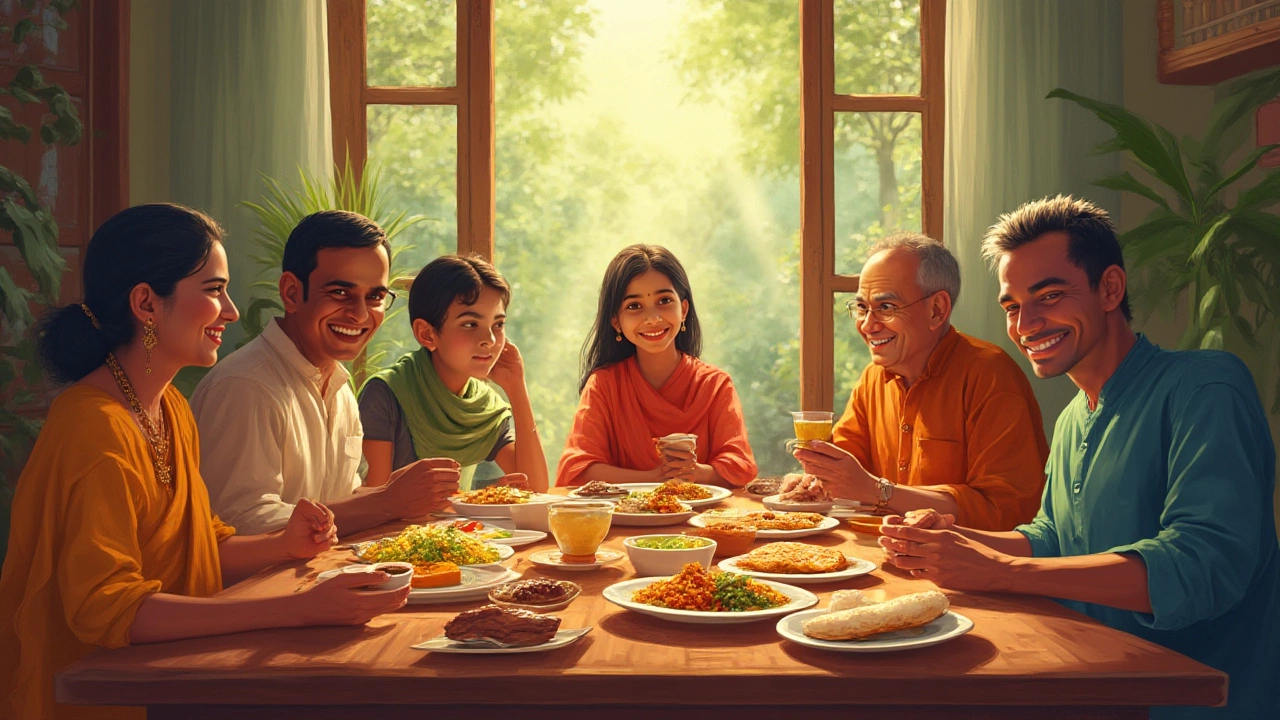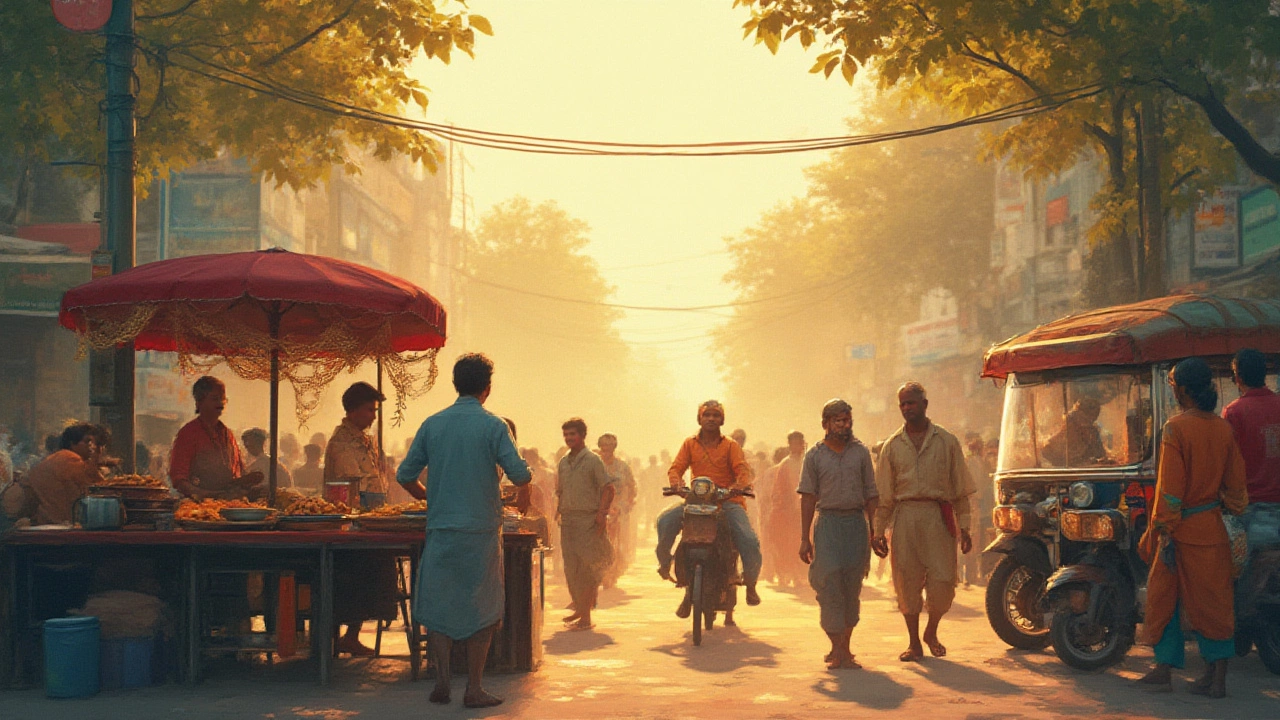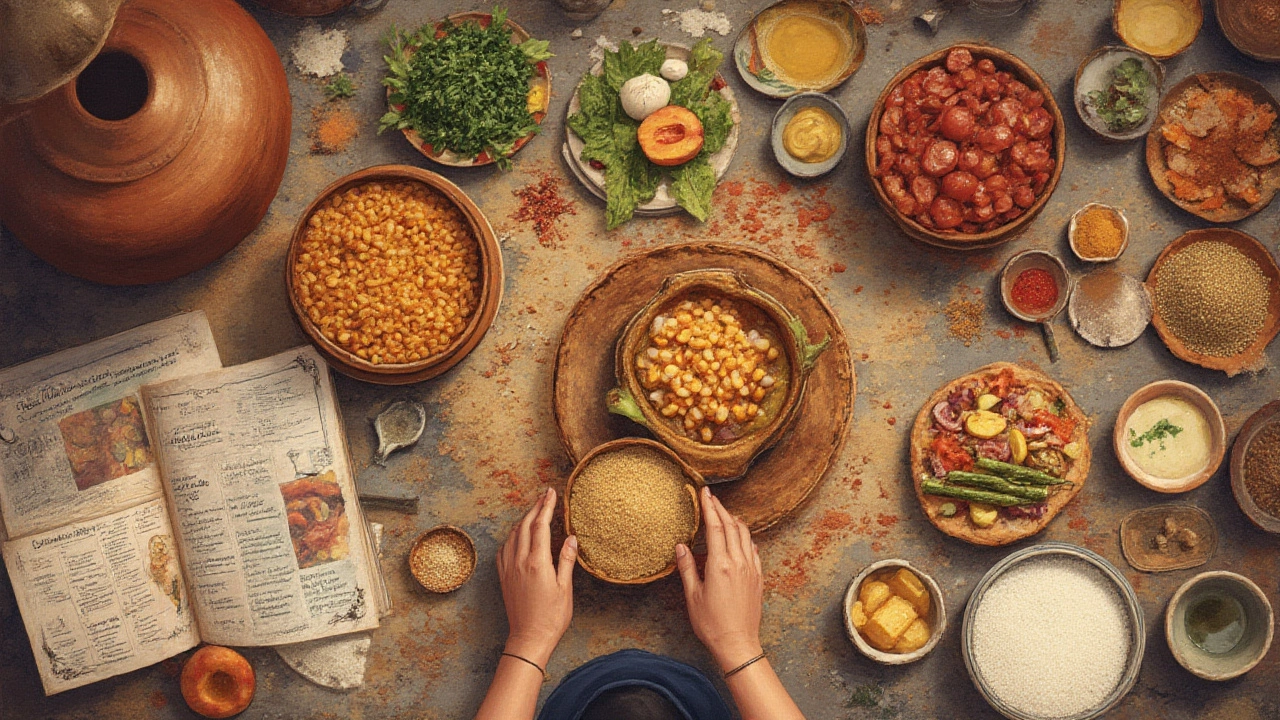
Ever wondered why breakfast gets so much hype in India? It isn’t just about filling your stomach before work or school—breakfast is woven into family routines and even regional identities here. While many cultures might grab a quick coffee and pastry, Indians turn this meal into a proper event. In South India, dosa-sambar is as normal as checking your phone in the morning. Up north, the comforting aroma of parathas wafting from kitchens can make even your worst days feel brighter. Honestly, the range of choices is wild.
Why Breakfast Matters in Indian Homes
Breakfast is not just an empty ritual in Indian families, it genuinely sets the tone for the whole day. Ask any nutritionist and they’ll tell you the same: a good breakfast can boost energy, balance blood sugar, and keep hangry mood swings away. But there’s something uniquely Indian about how families approach it. Mornings are a time when fresh, home-cooked food rules the table, and worrying about calories isn’t the first thing on anyone’s mind—flavor, tradition, and seasonality are.
Science backs up how important this meal really is. According to a 2022 survey by the Indian Council of Medical Research, nearly 89% of Indian households consider breakfast the most significant meal of their day. Around 62% claim they eat breakfast together as a family at least five times a week—way higher than the global average. What’s behind this loyalty? For starters, classic Indian breakfasts are packed with proteins, good fats, and complex carbs. For example, a bowl of upma with veggies and nuts offers more fiber and protein than a bowl of sugary cereal, keeping energy up for hours. Here’s a comparison chart of favorite breakfast dishes, their calorie count, and the primary nutrients they offer:
| Dish | Calories (Avg) | Main Nutrients |
|---|---|---|
| Poha | 250 | Carbs, Fiber, Iron, Vitamin C (if lemon added) |
| Masala Dosa | 350 | Carbs, Protein, B Vitamins |
| Paratha (Paneer) | 300 | Protein, Calcium, Carbs |
| Upma | 220 | Protein, Fiber, Iron |
| Idli Sambar | 200 | Protein, Fiber, Potassium |
| Egg Bhurji | 180 | Protein, B12, Healthy Fats |
It’s not all about numbers, though. In many joint families, mornings become a time to bond, swap stories about dreams, or argue about cricket scores—all while flipping dosas or rolling parathas. Kids get into the action too, maybe squeezing fresh oranges for juice or helping pick curry leaves from the garden. This communal energy around breakfast is why so many people—no matter how rushed or urban their lifestyle—still treasure sitting down to eat in the morning. If you grew up on spicy chutney with soft idlis, or sweet sheera on festival mornings, you probably still crave those flavors whenever you’re far from home.

The Tastiest and Healthiest Options Across India
India is a jackpot for breakfast diversity. Each region has its own superstar dish and local spin on nutrition. In Mumbai, people can’t get enough of misal pav—a spicy sprout curry with a bread roll, loaded with protein from matki beans. In Tamil Nadu, filter coffee and crisp medu vadas get the day rolling. Ever tried Bengali luchi-aloo tarkari? It’s flaky fried bread with a potato curry, and even though it’s not something you should eat every single morning, it’s comfort food at its finest.
Down in Kerala, appam with stew takes the prize for most soothing breakfast. It’s a lacy rice pancake paired with a mild coconut milk curry, naturally gluten-free and surprisingly light. In Karnataka, you’ll find ragi rotti—flatbreads made with finger millet, a nutrition superstar because of its high calcium and iron content. North India’s favorite, of course, is paratha, often stuffed with spiced potatoes, cauliflower, or paneer. The trick to making any paratha healthier? Swap half the flour for whole wheat, use olive oil instead of ghee, and add grated carrots or spinach to the dough.
If you're trying to cut calories or just keep things light, South Indian options have your back. Steamed idlis, made from a fermented blend of rice and urad dal, are naturally low-calorie, low-fat, and easy to digest. Add sambar (a vegetable-lentil stew) and coconut chutney, and you’ve got a complete meal. Fermentation boosts the B vitamins, making idli not just tasty but good for gut health too. On days when you’re running late, poha (flattened rice with turmeric, peas, and peanuts) works as a lifesaver since it cooks in under 20 minutes and doesn’t skimp on nutrients.
Egg dishes aren’t left out either. From masala omelettes in roadside tea shops to spicy egg bhurji in most homes, eggs are a cheap and quick way to power up your morning. If you have picky eaters around, sneaking in chopped spinach or tomatoes is almost too easy. For people who avoid eggs and meat, moong dal chilla is a smart swap—think of it as a savory pancake made from blended lentils and spices, crisp on the outside and soft inside. With over 400mg potassium and 12g protein in a regular serving, it punches way above its weight in nutrition.
Anyone looking for fast, fuss-free, and kid-friendly breakfasts? Peanut butter on whole wheat toast, a bowl of fresh seasonal fruit, or dahi with a handful of granola work well. Yes, these aren’t super-traditional, but Indian homes effortlessly mix the old and the new, especially for kids heading out the door. If you love leftovers, last night’s sabzi stuffed into a sandwich or rolled up in a roti is surprisingly tasty and reduces food waste too. And don’t dismiss smoothies—with local ingredients like ripe mango, banana, yogurt, and a sprinkle of flaxseed, you have a cold, filling breakfast that feels like dessert.

Tips for Making Breakfast Quick, Balanced, and Delicious
Let’s be real, weekday mornings in India can be manic—juggling work, school, and traffic means breakfast needs to be quick but not boring. Advanced prep helps a lot. Soak and ferment dosa or idli batter overnight; you might just love the flavor it develops. Pre-chop toppings for poha or upma and stash them in the fridge. If mornings feel rushed, batch-cooking parathas and freezing them is a game changer: stack parathas with parchment paper in between, then simply heat and eat.
Picking recipes that don’t require much brainpower at 7 a.m. helps. Poha, for example, can be spiced up or down and takes just 10 minutes if you have everything ready. Rolling out quick besan cheelas? Toss the batter with onions, coriander, and cumin seeds, then cook in a non-stick pan for another speedy fix. These can be folded and taken in lunchboxes too, so you basically solve two meals in one.
Drink choices are important as well. Chai is the runaway favorite, but drinking black coffee (in moderation) or a glass of buttermilk sets the mood for a good day too. For kids, milk with a drizzle of honey or turmeric keeps them fueled and strong. Stay cautious about sugary beverages or packaged juices—they spike blood sugar, then leave you crashing before lunch.
Want more staying power from your meal? The trick is mixing macronutrients: good carbs, some protein, and healthy fat. Imagine a plate of paratha with curd (protein and gut-boosting enzymes), a fruit upma paired with roasted peanuts for crunch, or whole wheat toast with a mashed chickpea topping (like a simple chana salad). This mix keeps you fuller and more focused and helps avoid snacking on chips mid-morning.
If you have special dietary needs—like gluten-free, vegan, or diabetic—Indian breakfasts still work well. Dishes like besan cheela, poha, and idli have built-in protein, are naturally gluten-free, and can be customized with whatever veggies or herbs you like. For vegans, swap dairy with coconut or almond milk, and use tofu or soya chunks in curries or as paratha fillings. Diabetics can load up on high-fiber upmas with extra spinach or try protein-packed sprouts salads. A 2023 survey by the National Institute of Nutrition, Hyderabad, showed that people who ate a balanced Indian breakfast were 27% less likely to crave high-calorie snacks later in the day.
What’s the sneaky secret to sticking with breakfast? Make it satisfying, make it social, and don’t stress over fancy recipes every day. Use what’s handy. Some of the best mornings start with a hot cup of adrak chai and a bowl of something simple. Just add a smile, and you’ve pretty much won the breakfast game.